Description
Garry’s coffee special features three of our more interesting coffees. Higher acidity, interesting processing, this bundle is leaning towards more exotic coffee tones.
*Bundles change over time. You will get the listed coffees at the time of order. *
A pound each of:
Colombian Premium Huila – Pacamara Natural Processed
A very unique Colombian offering! Natural processed brings taste characteristics only found in other Natural processed coffees. Very sweet, fruity and winey coffee, these tastes are achieved through fermentation in the coffee cherry. After picking, they slow dry them on raised drying beds, slowly turning them over at least a couple times in a day. Tricky to process naturals, if you dry too quickly, they turn very nutty like a standard Brazil, too slowly and they can get boozy and medicinal. Right in the middle, incredible sweetness and stone fruit like tones. This is a wonderful example, sweet and fruity without being too boozy or peanut shell tasting. These tastes will be too strong if you do not like naturals or fruitier coffee. Natural fans only on this one and generally best as pour over or drip beans. Certain espresso heads or cold brew fans will enjoy them though.
This is an oddball offering, but that’s makes us like it even more. Pacamara is usually giant beans, a bit on the strong side usually containing a sweet versus earthy taste. What we have here is more of a normal to small screen offering, which is very rare for the strain, very sweet but far less earthy than average. We have only seen a couple other smaller beaned Pacamaras in all the years of doing this. It was a clear choice by the farmers, the smaller beans are often sweeter and comingling it with the natural processing leaves a tasty treat. We tip our hat to them for this coffee is quite tasty but not inherently recognizable as Pacamara by appearance.
This natural-processed, single-variety lot comes from a group of eight smallholder farmers in Huila, working in the districts of La Argentina, Acevedo, and Pitalito. Strictly high altitude beans. Originating in El Salvador as a cross between the Pacas and Maragogipe varieties, Pacamara is known for its high-cup quality and long, oval shaped seeds.
Tasting Notes: Good from light to dark, but to see the fruit notes shine, keep it in the light to medium ballpark. A bit of lemony citrus upfront that fades into a sweet red fruit tone, followed by a bit of nutty/herbal darker notes. The sweetness and fruitiness linger on the tongue. A longer setup help rid the lighter roasts of the more herbal qualities. Medium roasts are pretty bulletproof and well balanced, showing a little more of a potent nutty/chocolate undertone but no missing the fruitiness and slight citric. Darker roasts worked very nicely for a natural processed, sometimes they get all sour and twangy, but being both a Colombia and Pacamara, the more robust body and nuttiness with a slight roasty & chocolate overtone, mix very nicely with a little sweet fruitiness in the aftertaste.
Roasting Notes: An easy coffee to roast, for it was hard to find a bad roast point, but due to the higher chaff levels, slightly smaller bean screen and two toned roasting. Nailing you roast on the first go can be a little challenging. Coffee has a bit longer first crack due to the two toned roasting but its not horrible, just make sure first crack has subsided pretty good before cooling it out or risk a little grassy. Getting a little development past first crack can be wise, erroring more towards a medium roast, builds a bit more body and reduces a little acidity, minimizing and grassy or herbal notes coming from too light of a roast. As you push towards a darker roast, strong medium per se, the surface will start to show a strong sheen, can help you identify the roast level a bit.
El Salvador Cerro Las Ranas Honey Processed
A blast from the past! A great year for Cerro Las Ranas. Years ago we found this coffee and fell in love, it was really cutting edge with its honey processing, an early adapter on what is now one of coffees hottest trends.
Cerro Las Ranas (the Hill of Frogs) coffee is named after the farm’s lagoon that is populated by thousands of frogs located in Apaneca within the department of Ahuachapan, El Salvador.
The coffee is produced by JASAL, a family owned operation where Jose Antonio Salaverria and his sons take great pride in their meticulous attention to detail, from year-round farm management to quality control in the cupping lab, and everything in between. In the pulped natural process (also called a honey process), Jose pulps perfectly ripened cherries and then dries the coffee beans, still covered in mucilage, on clay patios while constantly turning the beans to ensure even drying. This process provides a more consistent product than a full natural while still bringing some of the great attributes of a natural processed to the cup profile.
Tasting Notes: A lovely slightly-exotic daily drinker. Light to medium roasts are preferred with our favorite roast being right in the middle of the cracks. Lighter roasts have a hint of floral/citric acidity with just a touch of sweet and delicate red fruit coming from the honey processing. A bit on the nutty/chocolaty side for its balance, starts as a dry nutty at very light roasts, turns more chocolaty as the roast gets darker.
A little front loaded with the more acidic and fruity tones at traditional light roasts. Medium roasts have better balance between light an dark tones cutting out some acidity; smooth, rich and sweet edged. Dark roast loses the more exotic acidity and fruity edge but turns very thick, nutty, semi-sweet chocolaty with smoky accents.
Roasting Notes: A little higher chaff and a bit uneven roasting compared to a nice fully washed coffee. Nothing too challenging. We would recommend avoiding both super light and super dark roasts, they will either put a sour edge to the cup or a bitter edge. Light to medium roasting with this cup is where it will shine assuming you like a crisper cup. Close but not touching 2nd crack is ideal for smoothness and body.
Zambia Kateshi Estate – Natural Processed
A lovely natural processed coffee. Fruity, floral, sweet and chocolaty. Unlike the anaerobic natural, this cup will contain pretty normal natural processed tones. Far less wild but just as tasty.
Kateshi coffee estate, as one of the first coffee estates in Zambia, was established in 1972 close to Kateshi village. Back then, its wet processing facilities represented the heart of coffee production in northern Zambia having been the central mill for all coffee produced in the region. It is also award-winning; its natural and honey placing both 1st and 2nd in Zambia’s annual Taste of Harvest competition.
Local Community is at the heart of the estate’s vision. Covoya provides daily access to safe drinking water to over 20,000 locals and supports 3 schools that provide 1,500+ students with primary and secondary education. Also on site is our health clinic, the only such facility for 30km. Complete with a pharmacy and delivery room, the clinic provides free basic healthcare to over 4,000 community members and sees an average of 95 visitors per day.
Kateshi has been recognized for boldly challenging gender stereotypes in Zambia, being the first and only coffee estate to employ women for traditionally male-dominated roles such as driving tractors, bull-dozers and road graders. Oh, and we also sponsor a football team, the Kateshi Coffee Bullets who compete in the Zambian 1st Division.
Tasting Notes: Best at the light to medium roast level. Good bit of citrus and red fruit upfront balanced with a thicker chocolate and spice note. Light roasts get a very jazzy stronger citric tone, with just a hint of a dark tone balance. Floral and sweet edged, with an emphasis on the fruitiness of the cup. Medium roasting brings the best of both worlds, some soft fruit, some chocolate and spice: medium to full bodied and far less sharp than the lighter roasts, but also a bit less fruity. More of a chocolaty cup with fruity highlights. Dark roasts get even fuller bodied but burn out some sweetness, taste like semi-sweet chocolate on the roasty/smoky side, thick with a bit of spice in the aftertaste. A hint of fruitiness as the cup cools but hard to tell its natural processed roots at darker roasts.
Roasting Notes: Easy to roast all in all but high chaff and slightly uneven roasting, adding a little complexity to traditional light roast points. A long first crack with the bean surface color darkening up quickly, can cause folks looking for light roasts to cool it out a bit soon. Try to make sure 98% of beans get through first crack before cooling. Erroring towards a medium roast is pretty bulletproof for a good cup.
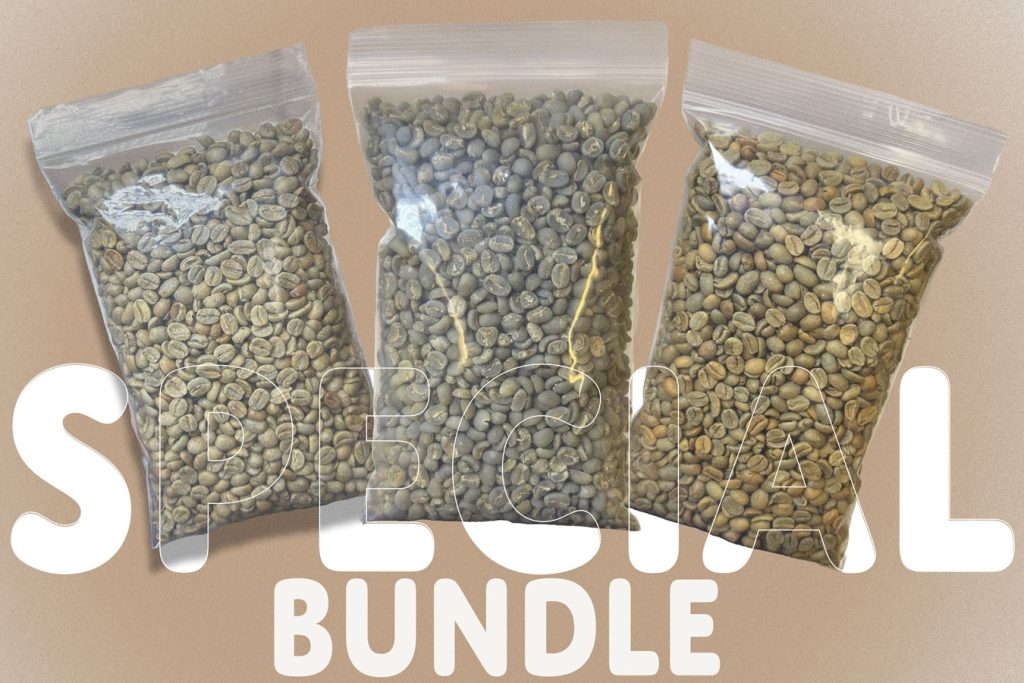
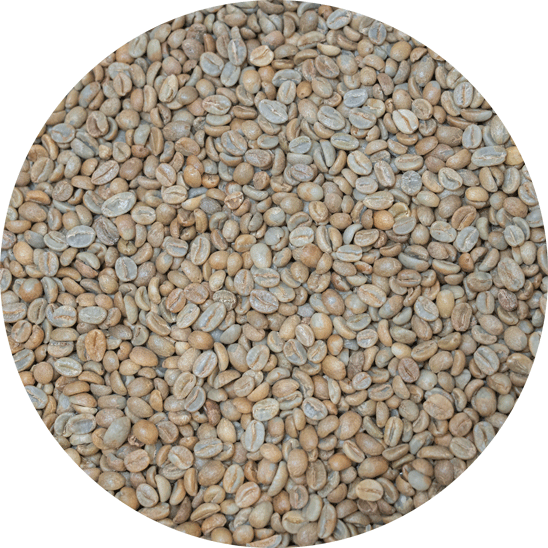
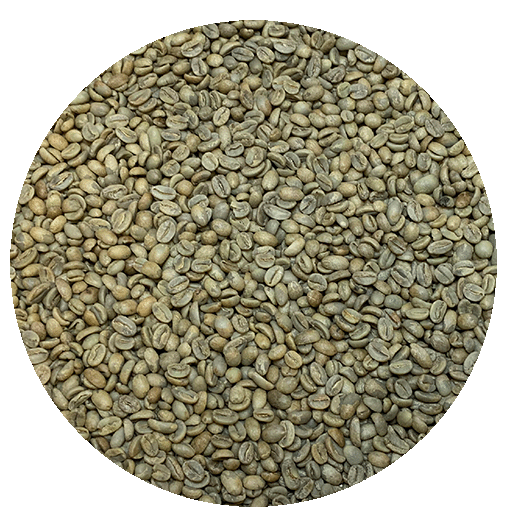
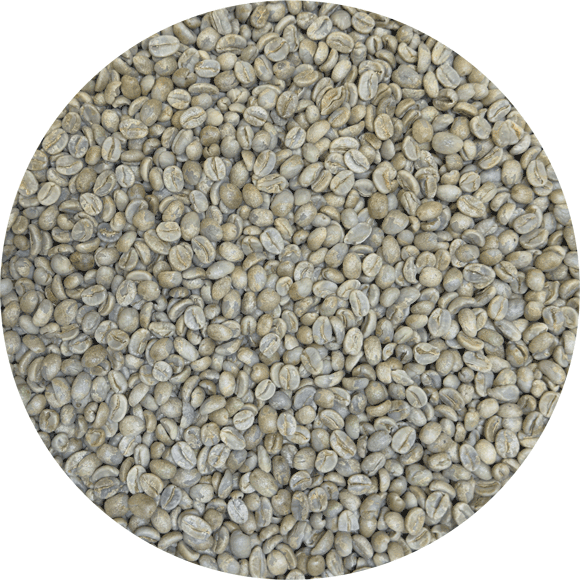

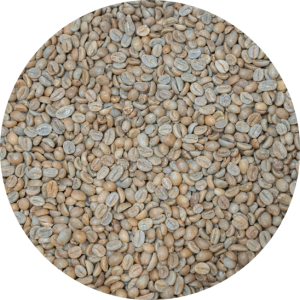
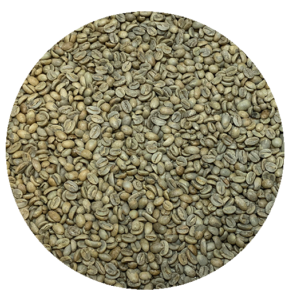
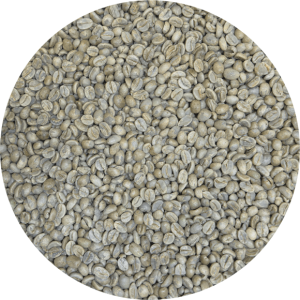
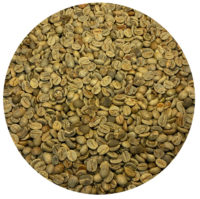

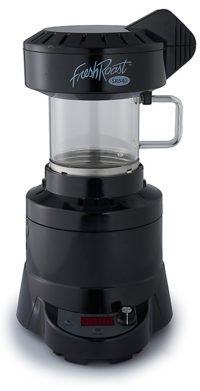
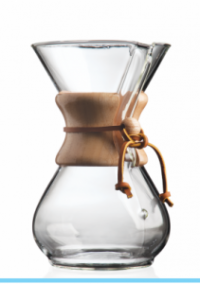

Reviews
There are no reviews yet.